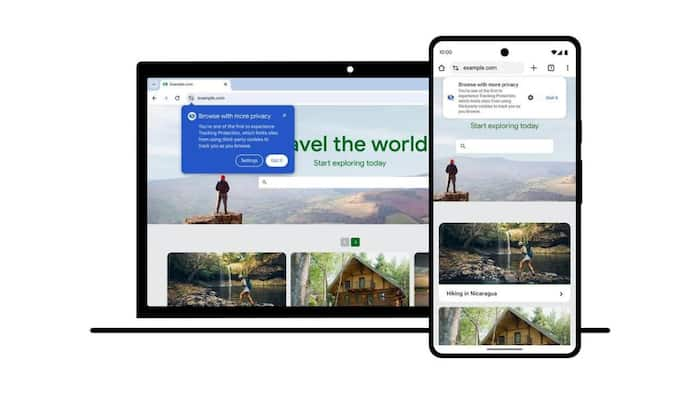
Written By Shubham Verma
Edited By: Shubham Verma | Published By: Shubham Verma | Published: Jan 05, 2024, 04:57 PM (IST)

Google has started testing a new feature that limits cross-site tracking by restricting website access to third-party cookies by default. The company has rolled out the ‘Tracking Protection’ feature to 1 percent of Chrome users (about 30 million users) globally, which is part of Google’s ‘Privacy Sandbox’ initiative to phase out third-party cookies for everyone in the second half of 2024. This feature would stop websites from tracking your online activities to offer you personalised advertisements across platforms that are a part of the data-sharing group. Also Read: Comet Browser By Perplexity AI Is Finally Free For All; Set To Rival Google, OpenAI, Anthropic?
“With the Privacy Sandbox, we’re taking a responsible approach to phasing out third-party cookies in Chrome,” said Anthony Chavez, vice president of Privacy Sandbox at Google. “We’re starting with a small percentage of Chrome users so developers can test their readiness for a web without third-party cookies,” he added, saying the rollout will be “subject to addressing any remaining competition concerns from the UK’s Competition and Markets Authority.” Also Read: Chrome For Android Gets iPhone-Style Swipe Animations: How To Enable The Feature
Users who will be selected for Tracking Protection will see a notification right next to the URL box in the browser. Tapping the notification will reveal a dialogue box that reads “You’re one of the first to experience Tracking Protection, which limits sites from using third-party cookies to track you as you browse.” In case a website does not work without third-party cookies and gives you issues, you can anytime turn cookies back on by clicking on the eye icon in the URL bar and then enabling the “Third-party cookies.” Also Read: OpenAI's GPT-4o model classified as 'Medium' Risk - What this means for the future of artificial intelligence
The company has plans for a full rollout of the ‘Tracking Protection’ feature to eliminate cookies later this year. Third-party cookies have been a fundamental part of the web for nearly three decades. While they can be used to track your website activities, sites have also used them to support a range of online experiences – like helping you log in or showing you relevant ads.
“We’re taking a responsible approach to phasing out third-party cookies in Chrome,” said Chavez last month while announcing the ‘Tracking Protection’ test. “We’ve built new tools for sites that support key use cases, and provided time for developers to make the transition,” he added.
Chavez added, “With Tracking Protection, Privacy Sandbox and all of the features Google launches in Chrome, we’ll continue to work to create a web that’s more private than ever, and universally accessible to everyone.”
— Written with inputs from IANS